 Petzlover
Petzlover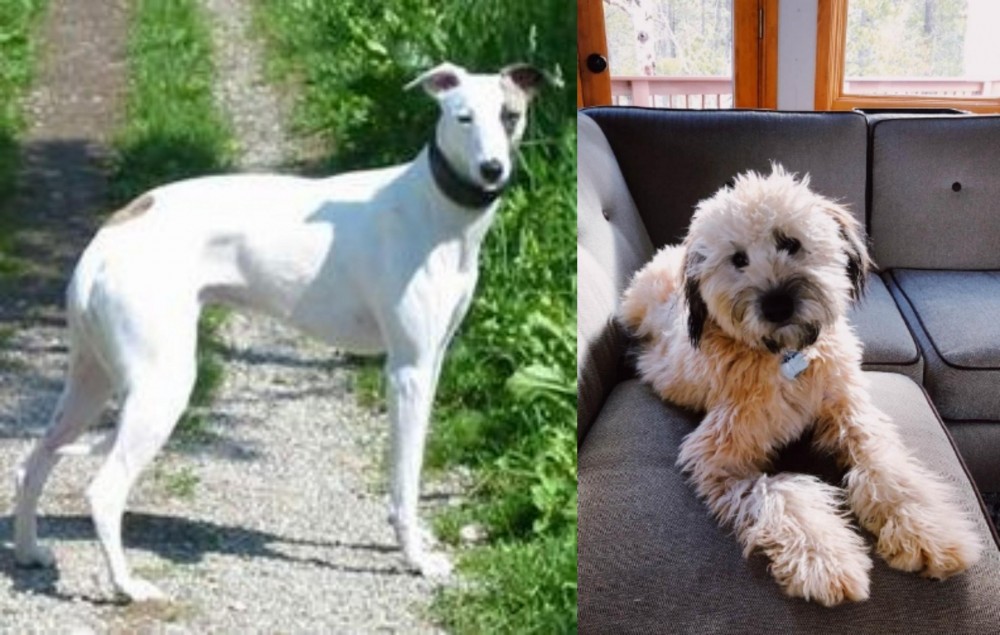 Kaikadi is originated from India but Whoodles is originated from United States. Both Kaikadi and Whoodles are having almost same height. Both Kaikadi and Whoodles are having almost same weight. Both Kaikadi and Whoodles has almost same life span. Both Kaikadi and Whoodles has almost same litter size. Kaikadi requires Low Maintenance. But Whoodles requires Moderate Maintenance
Kaikadi is originated from India but Whoodles is originated from United States. Both Kaikadi and Whoodles are having almost same height. Both Kaikadi and Whoodles are having almost same weight. Both Kaikadi and Whoodles has almost same life span. Both Kaikadi and Whoodles has almost same litter size. Kaikadi requires Low Maintenance. But Whoodles requires Moderate Maintenance
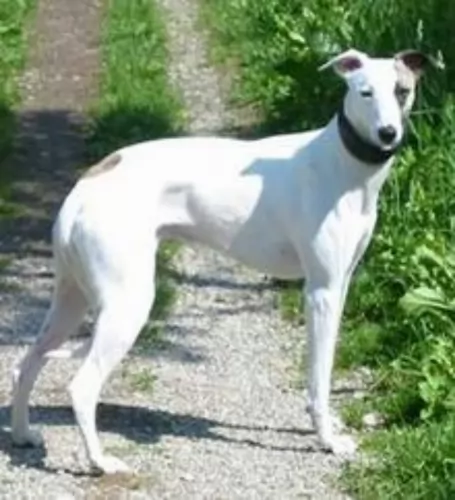 The Kaikadi or Kai Kadi is a terrier dog, hailing from India. Not much is available on the history of the dog, but today you won't easily find original Kai Kadi in India. This is because they have essentially been mixed with stray dogs of India as well as Pariah.
The Kaikadi or Kai Kadi is a terrier dog, hailing from India. Not much is available on the history of the dog, but today you won't easily find original Kai Kadi in India. This is because they have essentially been mixed with stray dogs of India as well as Pariah.
It is for this reason that the dog isn't recognized as a standardized breed by any of the leading kennel clubs.
 Known also as the Wheatenpoo or the Wheatendoodle, the Whoodle is a teddy-bear kind of mixed-breed dog, being a cross between Poodles and the soft-coated Wheaten Terrier.
Known also as the Wheatenpoo or the Wheatendoodle, the Whoodle is a teddy-bear kind of mixed-breed dog, being a cross between Poodles and the soft-coated Wheaten Terrier.
He came about in the mid-1900s so he is still quite a new breed. Like with most hybrid breeds, the Whoodle doesn’t have a well-documented history.
Because most hybrids hail from the USA, one can assume that the Whoodle comes from there as well.
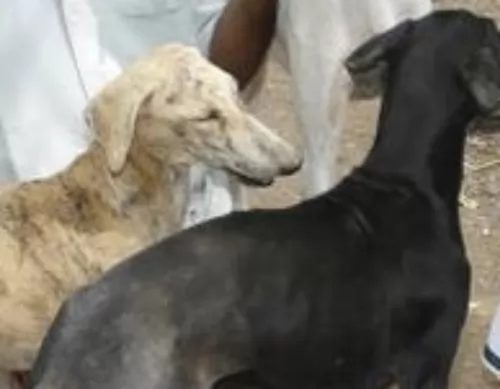 These dog have always been used for hunting, guarding and herding in India and today he makes a good watchdog, watching over his human family.
These dog have always been used for hunting, guarding and herding in India and today he makes a good watchdog, watching over his human family.
It's not a large dog though and he stands at roughly 35 to 45cm in height and weighs 17 to 21kg. He is lean and muscular, looking similar to the Italian Greyhound or Whippet.
He has a short smooth coat and the color can be patterned white, tan and black. The head is long and thin, as are the legs, and his tail is long and thin too. The floppy ears stand erect when alert.
The Kaikadi is an affectionate, alert, energetic dog. He won't do well in a city environment with a tiny garden as he requires a large garden to run in.
He is a dog that will need to be trained and socialized if you want him to be obedient and to get on well with children in the home as well as pets.
He can be a fairly quiet, docile dog inside but outside when there is a game to be had, he becomes lively and animated. They are quite sensitive, so while they get on well with children in the home, he won’t respond well to large families with lots of rowdy, undisciplined children as it makes him anxious.
 The Whoodle is a medium-sized dog that stands at between 30 and 50cm in height and weighs in the region of 9 to 20kg.
The Whoodle is a medium-sized dog that stands at between 30 and 50cm in height and weighs in the region of 9 to 20kg.
He has a silky, medium-length coat that can be fairly straight or wavy and which is available in a range of colors – black, brown, grey, cream and red.
He isn’t a heavy shedder, but their hair can grow fairly long so he will have to be groomed one way or the other. Many people choose to have him trimmed at the doggy salon. With the Poodle being in the mix, it is thought that the Whoodle coat is hypoallergenic, sought after by dog owners who suffer from allergies.
Just because of the dog breeds your Whoodle dog comes from, you can know that you’re going to have a playful, happy, friendly, outgoing, social pet who will have no doubt inherited a lot of good qualities from both parent breeds.
He will happily settle down with you in the city or the countryside. He absolutely loves human company and isn’t the kind of dog to be put outside for hours separated from his humans.
If there are children in the home, they’ll discover that this little dog is always up for a game. He gets on well with children and other pets. Early training and socialization will be imperative for the Whoodle as he is a strong-willed dog, inclined to be stubborn and you want to make sure he is obedient.
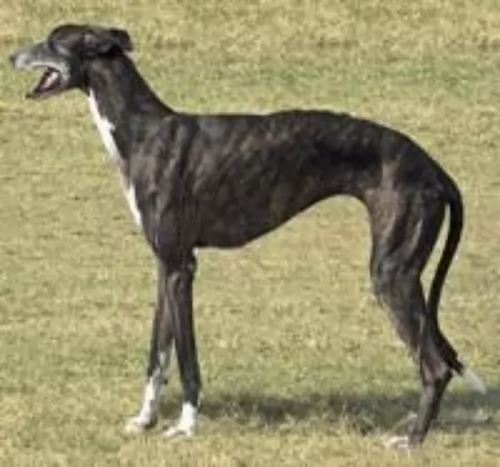 Your Kai Kadi loves running and playing outside, after all he has always been a hunting dog. He will love to spend time with you outside playing.
Your Kai Kadi loves running and playing outside, after all he has always been a hunting dog. He will love to spend time with you outside playing.
The Kaikadi is a low maintenance dog too. Provide your Kaikadi with everything that makes a dog happy and in exchange you’ll get yourself a loyal, loving pet who wants to be your friend.
 The Whoodle is a hybrid dog – a mix between the soft-coated wheaten terrier and the poodle.
The Whoodle is a hybrid dog – a mix between the soft-coated wheaten terrier and the poodle.
They make splendid pets and companions and are cheerful and intelligent, wanting to be constantly by your side.
Because both of the parents are working dog breeds, he is an active dog too, loving to take part in all the activities his family is busy with.
When you bring this little teddy bear of a dog into your home, you’re going to have years of benefiting from a true canine companion.
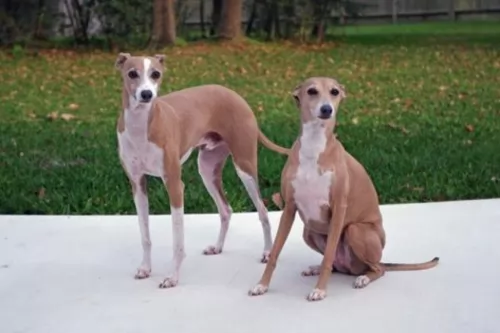 When you’ve got a Kai Kadi, make sure you understand some of the health risks that come along. This is a healthy dog breed so you’re not likely to have much going wrong with him, but you need to know that he can get sick and then you need to have the name of a good vet for medical treatment -
When you’ve got a Kai Kadi, make sure you understand some of the health risks that come along. This is a healthy dog breed so you’re not likely to have much going wrong with him, but you need to know that he can get sick and then you need to have the name of a good vet for medical treatment -
A sudden drop in blood sugar, which is many times brought on by stress, can make your dog lethargic and even have slight tremors in the face. It could be a hypoglycemic attack. See the vet immediately.
The pancreatitis can become inflamed and your dog could be vomiting, have diarrhea and have abdominal pain. There are quite a few things that can cause pancreatitis such as obesity, infection as well as stress.
 The Whoodle is considered to be a healthy little dog but they can suffer from some of the many common dog illnesses there are. It’s important to feed your dog well and to exercise him to ensure his good health. Some of the common health problems he could suffer with -
The Whoodle is considered to be a healthy little dog but they can suffer from some of the many common dog illnesses there are. It’s important to feed your dog well and to exercise him to ensure his good health. Some of the common health problems he could suffer with -
It is important to ensure your Whoodle has his vaccines to prevent some of the deadly canine diseases there are.
Also, it is a good idea to have your pet neutered or spayed to prevent an unwanted litter. Spaying and neutering have health benefits for your pet, so it is a good idea to have this done for them.
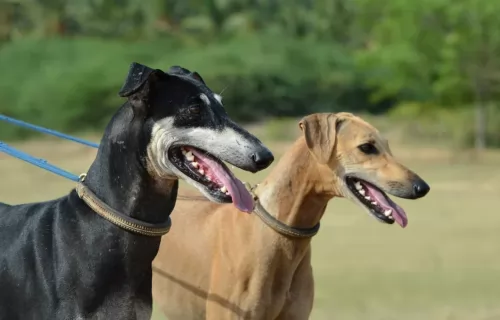 Owning a dog is a responsibility, requiring you to look after a living being just like you would any family member of yours, otherwise why get a dog in the first place?
Owning a dog is a responsibility, requiring you to look after a living being just like you would any family member of yours, otherwise why get a dog in the first place?
You may want a dog for watchdog purposes, but as a living creature, it is important to develop a relationship with your pet and to show him that you love and appreciate him.
There are many things to do to ensure you have a healthy, happy 4-legged canine member in your household
Make sure he has fresh, cool water available to him around the clock.
Provide him with a warm, dry place to sleep.
Provide him with wholesome food to maintain health. There are many excellent commercially manufactured foods on the market. Buy one according to the size and energy levels of your pet. Try to sometimes add cooked home-made food into his kibble such as cooked chicken, brown rice and vegetables as well as some raw meat from time to time. This diet is guaranteed to keep your pet mentally and physically well.
Check your pets nails, ears and eyes regularly. He should be checked for fleas and ticks when you brush him twice a week. Have him examined by a veterinarian as soon as you suspect something is amiss with him. Keep him up to date with his vaccinations.
The Kaikadi is an energetic dog so make sure that you provide him with the opportunity to be exercised. Take him on walks or hikes, play ball and rope games with him and go swimming with him to ensure he remains lean and muscular.
Have him trained and socialized as it takes off the rough-edges of a dog.
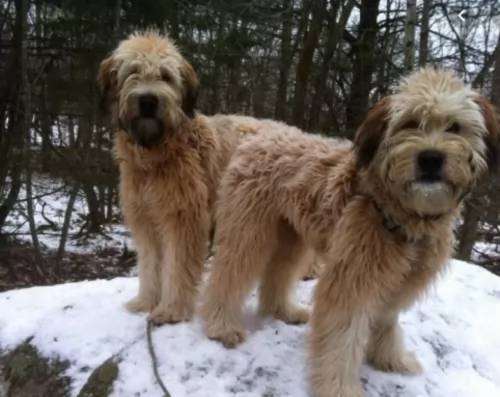 Apart from your Whoodle requiring regular nail trimming, you will want to brush him twice a week to keep their coat free from matting. Some Whoodle owners prefer to have their pets professionally groomed.
Apart from your Whoodle requiring regular nail trimming, you will want to brush him twice a week to keep their coat free from matting. Some Whoodle owners prefer to have their pets professionally groomed.
Check inside his mouth while grooming to ensure there are no bad teeth. This could cause your pet a lot of pain and he has no way of telling you this.
As a medium-sized dog, you want to feed your pet a commercially manufactured dog food that has been formulated for a medium-sized dog and one with lots of energy.
Their dietary needs change from puppyhood to adulthood and where the puppy received 4 bowls of food a day, the adult Whoodle will require 2. Always buy the best quality food you can as the choice of food you provide has a huge impact on his health.
Some home-made food is always a good idea too but it needs to be simple and plain, without any exotic spices. Boiled chicken, rice and vegetables is always a splendid choice and it can be added to the dry kibble as a supplement.